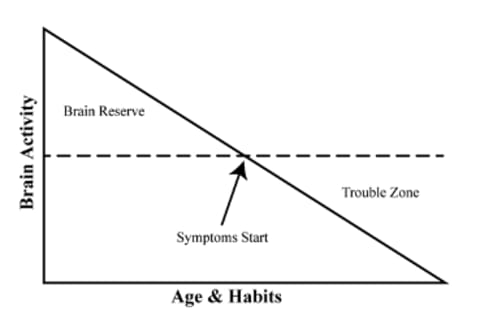Advertisement
Experiencing Mental Health Issues For The First Time? A Neuroscientist Explains Why


Feeling like you aren't quite yourself these days? Maybe you're keyed up, on edge, and have worrisome thoughts racing through your head? Or maybe you're feeling flat, uninterested, and disconnected from others. What the heck is going on? Are you just having a string of really rotten days, or is it something more serious?
You might be experiencing mental health issues.
If your symptoms are interfering in your daily life—sabotaging your sleep, keeping you from getting any work done, or causing you to feel hopeless—it's time to consider that you may be experiencing anxiety or depression (or both, as they often go together).
Even if you've been mentally healthy your whole life, the stacked stresses of the pandemic, financial strain, and isolation may have pushed you into unknown territory. And you're certainly not alone. For example, a 2020 poll reported that 56% of Americans say that worry or stress related to the pandemic has negatively affected their mental health.
Why are so many of us having mental health problems for the first time?
We all have a certain level of what I call "brain reserve." That's the extra cushion of brain function you have to help you deal with the curveballs life throws at you. In general, the more brain reserve you have, the more resilient you are. Here's a graphic to give you a better idea of what I'm talking about:

Your everyday habits either increase your brain reserve or drain it. If you typically follow a healthy routine but have adopted some unhealthy quarantine habits—day drinking, baking up a storm, endless Netflix bingeing—you may have lowered your brain reserve.
Higher stress + lower brain reserve = trouble.
So, what can you do?
If you're struggling for the first time, it's important to seek professional help. But don't let medication be the first or only thing you do to fight the bothersome symptoms.
Engaging in daily habits that boost brain reserve can also enhance mental well-being. This will look different for everyone, but I generally advise focusing on positive thoughts, to trigger a release of feel-good neurochemicals. Other practices—like hydration, sleep, exercise, and nutritious eating—can also have a positive impact on mental health.

















